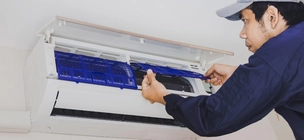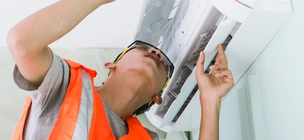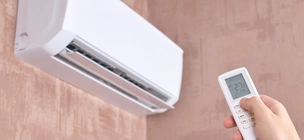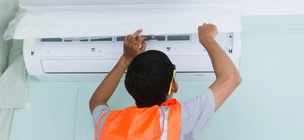Air conditioning systems can experience various issues that impact their efficiency and effectiveness, especially as they age or during peak use. From refrigerant leaks to sensor malfunctions, understanding common AC problems can help you recognize early warning signs and ensure timely repairs. Here’s an overview of some frequent air conditioning issues and how they affect performance.
Low refrigerant
Refrigerant is essential for cooling, as it absorbs heat from indoor air and releases it outside. If your AC is low on refrigerant, it’s usually due to a leak in the system. Signs of low refrigerant include decreased cooling, longer cooling cycles, and ice buildup on the coils. A refrigerant leak can also lead to increased energy bills, as the system works harder to reach the desired temperature.
Key impact: Low refrigerant reduces cooling efficiency, leading to less effective temperature control and increased energy consumption.
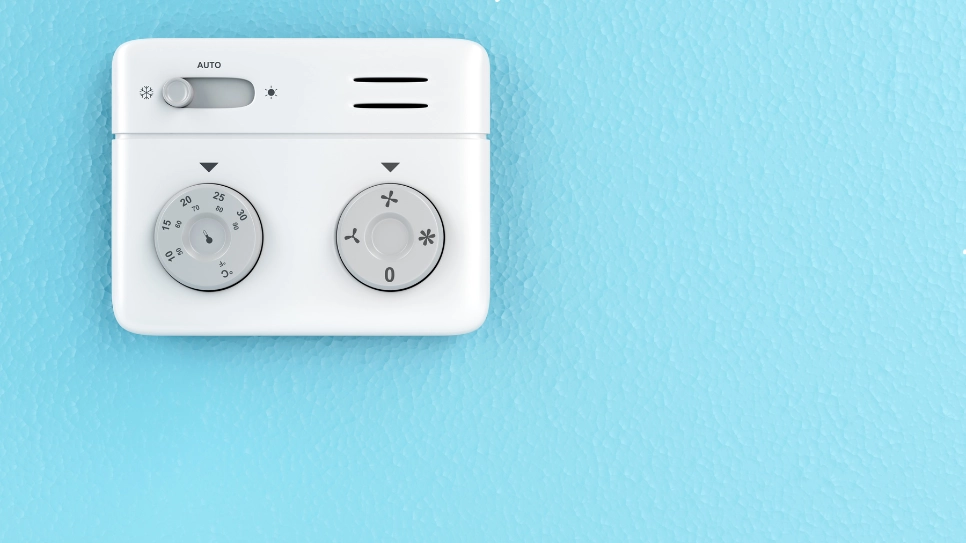
More information about the price of air conditioning can be found in our cost guide.
Faulty thermostat
A malfunctioning thermostat can cause significant temperature inconsistencies throughout your home. Issues may include inaccurate temperature readings, frequent cycling (turning on and off), or failure to respond to settings. Older or improperly calibrated thermostats are more prone to these issues. Inconsistent temperatures often result from a thermostat that isn’t accurately reading the room’s conditions, leading the AC system to overcool or undercool.
Key impact: A faulty thermostat disrupts consistent cooling, often causing discomfort and inefficient energy use.
Electrical problems
Air conditioners rely on electrical components, including circuits, fuses, and wiring. If the system shuts down frequently or fails to start, electrical issues may be the cause. Faulty or worn-out wiring, tripped circuit breakers, or blown fuses can all prevent the system from functioning properly. Electrical issues pose safety risks and may lead to costly repairs if not addressed promptly.
Key impact: Electrical issues can lead to unexpected shutdowns, reducing system reliability and potentially causing long-term damage if unresolved.
Drainage issues
Your air conditioner removes moisture from the air, which then drains away through a condensate line. If this line becomes clogged or damaged, water can back up, causing leaks or water buildup around the unit. Drainage issues are often caused by dirt, algae, or debris clogging the condensate line, which can lead to mold growth, water damage, and reduced system efficiency.
Key impact: Clogged drains cause water leaks, which may lead to water damage, mold growth, and inefficient AC performance.
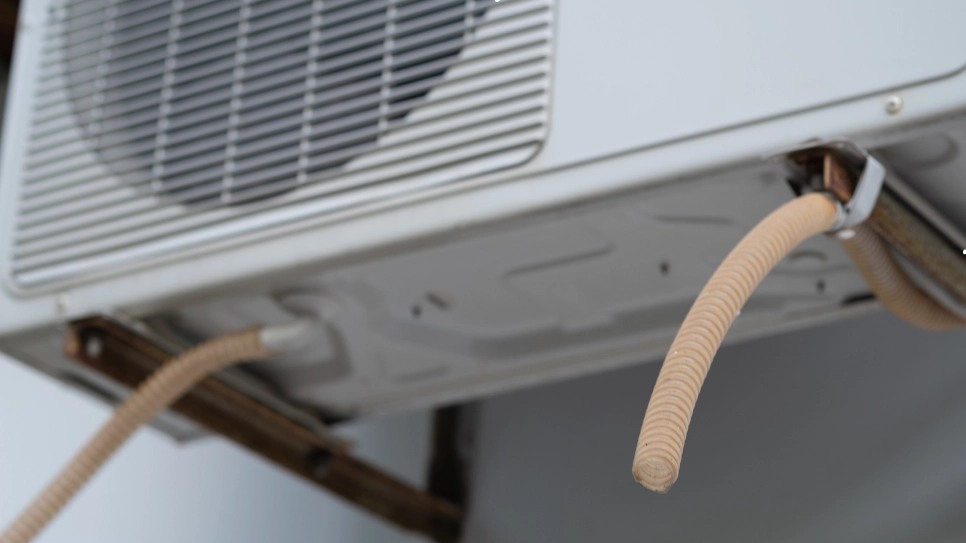
Read another one of our articles on air conditioning, which describes the top causes of poor airflow in air conditioners.
Sensor malfunctions
Air conditioners have sensors that detect room temperature and regulate cooling cycles. If a sensor becomes misaligned or fails, it may cause erratic cycling, where the AC turns on and off unexpectedly, leading to inconsistent cooling. Sensor malfunctions are more common in older units, but they can occur in any system. When the sensor isn’t functioning correctly, it disrupts the AC’s ability to maintain a stable, comfortable temperature.
Key impact: Sensor malfunctions lead to erratic performance, causing inconsistent cooling and potentially shortening the system’s lifespan.
Identify common AC issues early to ensure reliable cooling and avoid breakdowns. Regular upkeep helps, but for complex problems, trust a professional. Request a quote for AC repair on Procompare to keep your device in top shape!



